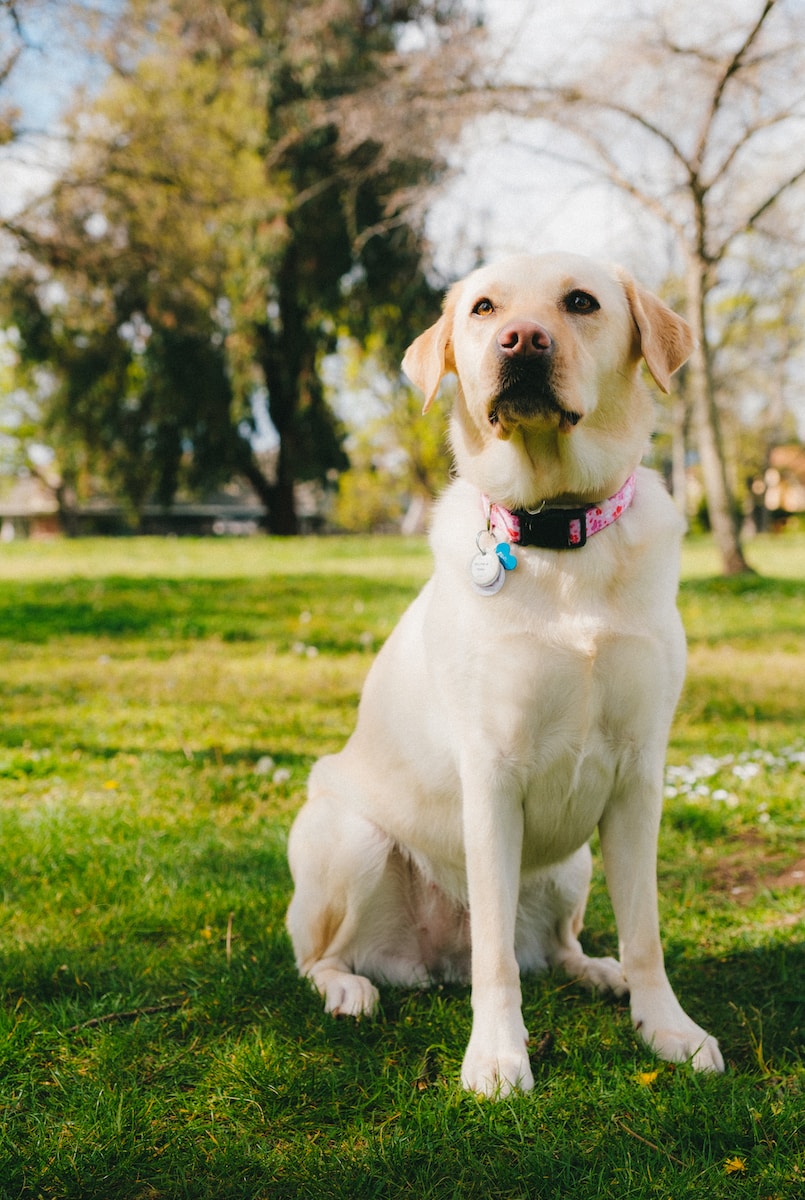Labrador Retrievers, while wonderful companions, can present certain behavioral challenges. Here are effective strategies to address common Labrador training challenges like jumping, chewing, and leash pulling:
Jumping:
Labradors are enthusiastic greeters, but jumping can become bothersome. To tackle this behavior:
- Consistent Training: Teach commands like “Off” or “Down” consistently and reward your Labrador when they greet people calmly with all four paws on the ground.
- Ignore and Reward: Ignore jumping behavior and provide attention only when your dog is calm. Reward them with praise or treats for sitting politely.
- Ask for an Alternative Behavior: Train your dog to sit or offer a toy when seeking attention, redirecting their energy positively.
- Use Leash Management: When expecting visitors, leash your dog and guide them into a sit before allowing people to enter, controlling excitement and preventing jumping.

Labrador Training Challenges: Chewing
Chewing is natural for puppies but can become destructive if not managed:
- Provide Appropriate Chewing Items: Offer safe and durable chew toys, rotating them to keep your Labrador engaged.
- Supervision: Supervise your dog when they’re not crated to redirect them to proper chew items if they start chewing on unauthorized objects.
- Positive Reinforcement: Praise and reward your dog when they chew on the right items to encourage this behavior.

Leash Pulling:
Labradors’ enthusiasm can lead to leash pulling, but consistent training can improve this behavior:
- Basic Training: Teach loose leash walking using positive reinforcement. Reward them when the leash is slack and gently stop if they pull.
- Change Direction: Swiftly change direction when your dog pulls to show that pulling doesn’t get them where they want to go.
- Use Proper Equipment: Consider a front-clip harness to discourage pulling and redirect their motion.
- Reward Calm Behavior: When your Labrador walks beside you without pulling, reward them with treats, praise, and verbal encouragement.
Remember, addressing behavioral challenges takes time, patience, and consistency. If you find it challenging to manage these issues independently, a professional dog trainer or behaviorist can provide tailored guidance to meet your Labrador’s specific needs.
Nutrition and Health Care
Labrador-Specific Dietary Needs: Labradors are prone to obesity due to their love for food. To meet their dietary needs:
- Choose high-quality dog food suitable for their age, size, and activity level.
- Follow feeding guidelines on the packaging and adjust portions based on your dog’s metabolism and activity level.
- Use treats sparingly, considering them part of your dog’s daily calorie intake.

Importance of Regular Veterinary Check-Ups:
Regular vet visits are vital for your Labrador’s health:
- Puppies need frequent visits for vaccinations, deworming, and general health monitoring.
- Adult Labradors require annual check-ups to catch health issues early.
- Senior Labradors may need more frequent visits for age-related concerns. Regular check-ups allow your vet to detect and treat potential health problems before they become serious.
Managing Weight and Promoting Overall Health:
Managing your Labrador’s weight is essential to prevent obesity-related health issues:
- Measure food portions and avoid free-feeding, splitting their daily intake into multiple meals.
- Use low-calorie treats for training and rewards.
- Incorporate regular exercise through daily walks, playtime, and mentally stimulating activities to keep your Labrador healthy and happy.
- Monitor your dog’s weight regularly and consult your vet if you notice significant changes.

Additional Tips for Overall Health:
- Provide fresh and clean water at all times.
- Regularly brush your Labrador’s teeth to prevent dental issues.
- Groom their coat to keep it clean and healthy.
- Be aware of allergies, as some Labradors may have sensitivities to certain foods.
- Promote mental stimulation with puzzle toys, training sessions, and interactive play to engage their minds.
Remember that every Labrador is unique, so consult your veterinarian for personalized advice on their dietary and health needs. With proper care, nutrition, and regular veterinary attention, you can ensure your Labrador enjoys a long, healthy, and joyful life. Thanks for reading our quick guide on Labrador training challenges.
By the way – If you’re embarking on a journey to make your pup the ultimate doggo sensation, you simply must explore Adrienne Farricelli’s dog training program. Trust me, she’s one of the kindest souls in the world of dog training. And her classes? Well, they’re like having your very own personal dog whisperer right at your disposal. Adrienne’s approach is incredibly approachable (no pun intended), and she’ll guide you step by step to have your furry friend trained like a pro. So, if you’re seeking the ultimate, in-depth guide to canine training success, don’t miss what Adrienne’s offering. Your pup will shower you with a million tail wags! 🐶❤️

0 replies on “Labrador Training Challenges: Challenges and Solutions”
Hey very nice site!! Man .. Excellent .. Amazing .. I will bookmark your I’m happy to find a lot of useful info here in the post, we need work out more techniques in this regard, thanks for sharing. . . . . .
Your comment is awaiting moderation.